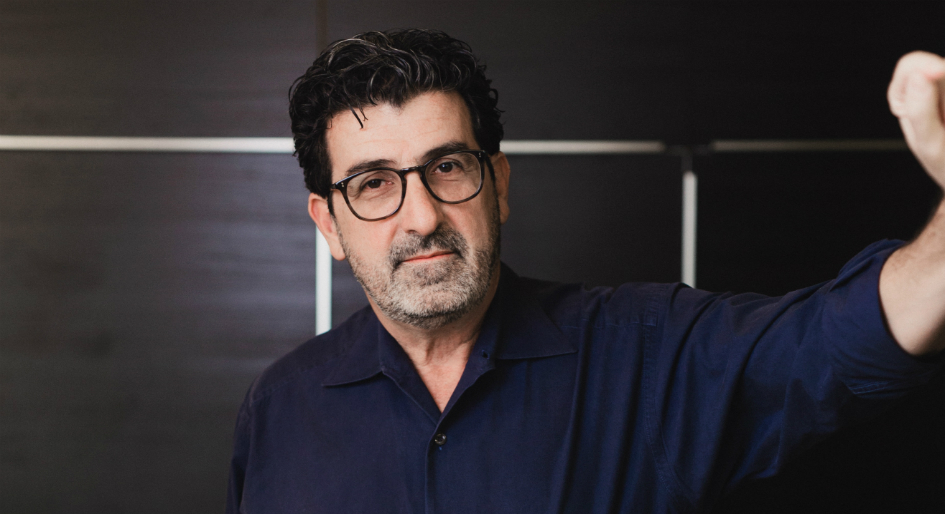For much too long, the contract cleaning industry has been largely ignored despite the fact that there are more than 27,000 companies operating in this sector Canada-wide. While it’s easy to understand why most people don’t give building cleaning much thought — in many cases, it’s performed out-of-sight at night — failure to recognize its value has proven a disservice to the industry and its workforce.
“As long as the industry remains in the shadows, there are companies that will continue to cut corners to stay afloat in a highly competitive market that faces downward pressure from clients to keep bids low,” says John Tsertos, operating manager of CFS Corp., a commercial contract cleaning company that serves the Greater Toronto Area. “This typically involves skimping on services and unsavoury employment practices.”
Subcontracting labour to immigrant workers (often via a shell company, where the owner is legal but its labourers are not) is rampant in the cleaning industry, says Tsertos, as they’re willing to work under the table for a low wage. Unfortunately, in doing so, they sacrifice their rights in the workplace and are often mistreated. But so long as this practice protects the profits of unscrupulous building service contractors — labour is the biggest percentage of a business’ costs — and their clients are willing to turn a blind eye to get what they want at the cheapest possible price, it will continue, he says.
“The cleaning business has become a dirty business,” says Tsertos, frankly. “It’s frustrating because there are legitimate companies that run the risk of losing business by asking higher prices, even though these prices accurately reflect the services rendered.”
CFS, an acronym for Cleaning Facility Services, is one such company. Headquartered in Mississauga, Ont., the janitorial service provider was established in 1996, by Tsertos’s late brother George. Like most entrepreneurs, George started the business solo and then grew its workforce as he garnered more contracts. By 2009, the year of his untimely passing, George’s ‘mom-and-pop’ shop had almost tripled in size and was on the verge of exploding.
“It’s a sad story,” says Tsertos, who got involved in the company at his parents’ request to keep his brother’s legacy alive.
Thankfully, he was able to keep CFS’s momentum going but the ride hasn’t been without its bumps.
Some of the most formidable challenges the restructured company has faced presented themselves early on. Though born and raised in Toronto, Tsertos lived in Houston, where he had put down familial roots and operated a successful real estate development company. It was from here that he would manage CFS — more than 2,400 kilometres from the company’s head office and clients, which span multiple sectors and include office, retail, educational, healthcare and multi-residential properties. On top of this, Tsertos had limited knowledge of the cleaning industry at the time, beyond being a consumer of the product.
“My real estate development company has janitorial contracts in place at multiple properties so I knew the business from the client’s perspective,” he explains.
An astute professional, Tsertos quickly got up to speed on the service side of the sector and ensured the right people were in place at the company’s home base so that he could effectively manage two companies at the same time. Of course, Tsertos still likes to be hands on and travels frequently to Toronto, though the number of trips has diminished in recent years to approximately once per month thanks to its proprietary software, CFSLogix.
“I can do a lot of things remotely now because of the systems we’ve put in place,” he explains.
Shortly after taking over CFS’s reins, Tsertos searched for commercial cleaning software to help him profitably manage the company from afar. After coming up empty- handed, he decided to go the custom design route, resulting in CFSLogix. The innovative cloud-based management system is comprised of seven modules that work together to increase efficiency and ensure excellence for the company’s clients. They include production scheduling, quality control, personnel management, financial management, inventory management, program evaluation, and deficiency tracking and reporting. What’s more, the platform allows clients to track and monitor their portfolio 24-7, and provides access to the latest information on products, equipment, work processes, and codes and regulations.
“The client portal is a crucial operational tool that assists with our own internal monitoring processes and allows complete transparency of contract service delivery, which is a valued part of a successful client-contractor relationship,” says Tsertos.
At first, however, CFSLogix was nothing more than a glorified time clock. Using biometric technology, the system allowed Tsertos to track employee movements in real-time, including attendance, working hours and time spent on specific tasks. Soon after its implementation, Tsertos happened upon some concerning anomalies. Of note, multiple workers were pretending to be someone they weren’t. On further investigation, he discovered several employees had the same social insurance number. Without hesitation, Tsertos moved away from utilizing subcontractors for janitorial services, opting to hire a bona fide cleaning staff instead — a decision influenced by a past experience that “shook him to the core.”
“In the late ‘90s, one of my concrete guy’s labourers was electrocuted on a construction project of mine and it almost cost me my entire net worth,” Tsertos divulges. “While the incident was through no fault of my company, my insurance provider almost bailed on me because although my concrete guy was legal, his people weren’t. From there on in, I decided I’d rather do it the right way and not have as much business instead of the wrong way and not be able to sleep at night.”
Tsertos’s conscientious choice has been both a curse and a blessing. Switching from the subcontractor to employee model meant CFS had to pass its higher labour costs on to its clients to remain profitable. In instances where clients were unable to understand why the company was charging more money for the same services, Tsertos had to let them go. However, this then provided CFS the opportunity to go after quality clients — those that appreciate the company’s value proposition. Today, CFS services 28 locations, totalling six million square feet of cleanable space.
“We’ve had more setbacks than success by adopting this philosophy but the clients we have now are a better fit,” notes Tsertos. “They recognize you get what you pay for.”
And with CFS, that’s quite a bit.
CFS works in close partnership with its clients to develop customized commercial cleaning programs that yield measurable results by improving quality and safety, and containing costs.
As a CITS-certified (Cleaning Industry Training Standard) company, CFS is committed to providing its clients with highly trained employees who can properly perform their jobs. CITS is an International Sanitary Supply Association (ISSA) initiative that measures the quality of a company’s existing training programs and verifies that they adhere to a strict set of standards. Those who obtain the designation have the ability to certify frontline cleaning professionals within their organization.
The company is also dedicated to creating healthier, high performance facilities. This goes beyond employing environmentally preferable cleaning solutions, tools, equipment and processes to also include the regular use of adenosine triphosphate (ATP) testing to guarantee “what looks clean is actually clean.” Considered one of the most reliable methods of measuring cleanliness today, ATP testing can rapidly detect the amount of organic matter that is present after cleaning any surface. The amount of ATP detected, and where it’s detected, indicates areas and items that may need to be re-cleaned, and the possible need for improvement in the facility’s cleaning process.
“Ensuring a healthy environment has never been more important,” says Tsertos. “With recent public health threats such as H1N1 and SARS, facility managers have an increasing responsibility to ensure that they are doing everything to defend against the spread of contaminants and, resultantly, a possible outbreak.”
This is where cleaning plays a crucial, albeit all too often underrated role, he continues — one that CFS is working diligently to bring into plain sight.
Daytime cleaning, of which CFS is a strong proponent, is one way to raise awareness of and appreciation for janitorial work. Making cleaning staff visible puts a face on an often forgotten industry and serves to professionalize it. Further, it fosters mutual respect between cleaning crews and building occupants, imbues a sense of pride that is currently in short supply among workers and provides a desirable improvement in job conditions.
“We got involved in daytime cleaning because of the myriad of benefits it offers our workers and clients, both financial and non-financial,” says Tsertos. “But more importantly, it ties into what we’re trying to achieve — a higher industry standard and total transparency.”
Clare Tattersall is the editor of Facility Cleaning & Maintenance
Photos by Ling Wang






